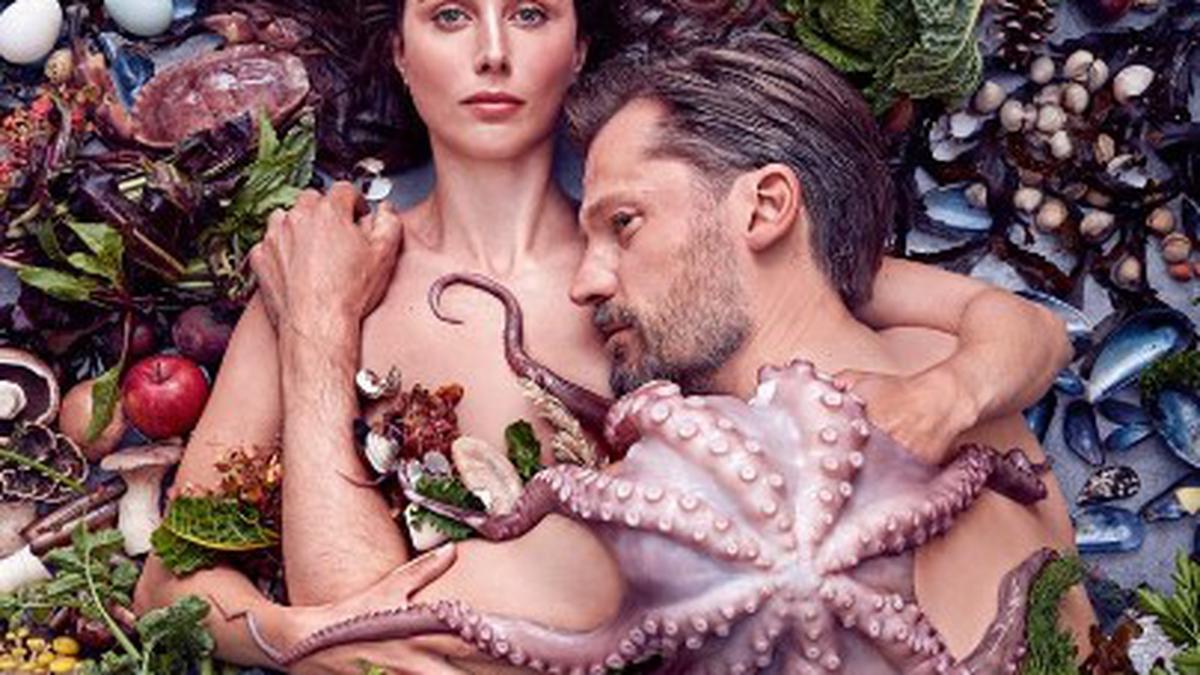
European films pass a quiet week in Dhaka, but leave behind some unforgettable characters Premium
The Hindu
European films explore themes of racism, violence, criminality, and immigration, often through stories of triumph over adversity. From The Big Hit to Mally Can Fly, these films show characters overcoming obstacles to find redemption and a fresh start. Through comedy and tragedy, these stories offer a glimpse into the human experience and stay with the audience long after the show.
A defeated-looking drama teacher walks into a French high-security jail to take up an unconventional job. He decides to reprise a production of Waiting for Godot, with prisoners – a seemingly strange move that raises the eyebrows of the prison authorities. But Étienne Carboni, the drama teacher played by French-Algerian filmmaker and actor Kad Merad, is relentless and goes ahead with his plan. The film, titled The Big Hit in English, is a prison comedy. In its final act, however, it delves into Samuel Beckett’s theme of modern life often lived in anticipation of something that never comes – something that doesn’t exist in the present but remains always beyond the horizon, something coming tomorrow. The story is meant for a cultivated audience familiar with an underlying theme of absurdity and futility.
On the evening of the final show by Étienne, most prisoners disappear from the venue to savour the moments of freedom, leaving the teacher in utter frustration. Then, Étienne walks onto the stage to the murmurs of the shocked audience, turning the evening into glorious moments for himself with his monologue and connecting the “crazy” episode to quiet tragedy in human existence. The film is not hopeless, though. The day brings Étienne closer to his daughter in a replay of redemption at the end of the film.
The theme driven by the raw energy of prisoners was among a series of European films screened last week in Dhaka, but it passed off quietly in a city now feverish with Shah Rukh Khan’s blockbuster Jawan. The show invited Valerio Caruso, Belgium-based director of Cineuropa, a website which promotes European films around the world, to hold a masterclass remotely.
In an interview, Mr. Caruso said European films often thrive in the freer atmosphere of nonlinear storytelling. Most American films, on the other hand, are bound by the classical rules of screenwriting – the plots have a protagonist and an antagonist and the protagonist must reach a goal. The theme plays out in a simplified, often linear format: the protagonist encounters and overcomes obstacles in reaching this goal.
By contrast, European stories may come with a sporadic narrative structure. “So there is not a beginning, a middle and the end. There is no necessary goal on the protagonist’s side,” Mr. Caruso said.
A Taste of Hunger, an engaging Danish film, unfolds in a series of flashbacks, pointing to early sweetness in a disillusioned couple’s lives and making a jarring contrast to the present. It’s about a man and his wife always in relentless pursuit of perfection in the culinary business, ignoring other dimensions of their lives. Carsten and his wife Maggi lurch from a passionate relationship to bitterness after sexual betrayal. They seem hungry for great food and even hungrier for a star from Michelin, one of the highest honours restaurants can get. They try to make the most of rare private moments, but panic overshadows marital bliss.
Carsten and Maggi face a crisis after a man they believe to be a Michelin scout has been served a spoilt ingredient at their restaurant. That means the restaurant will never be able to earn the accolade they desperately want.













